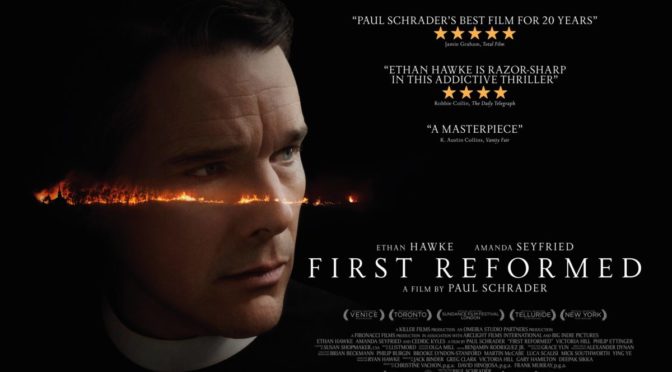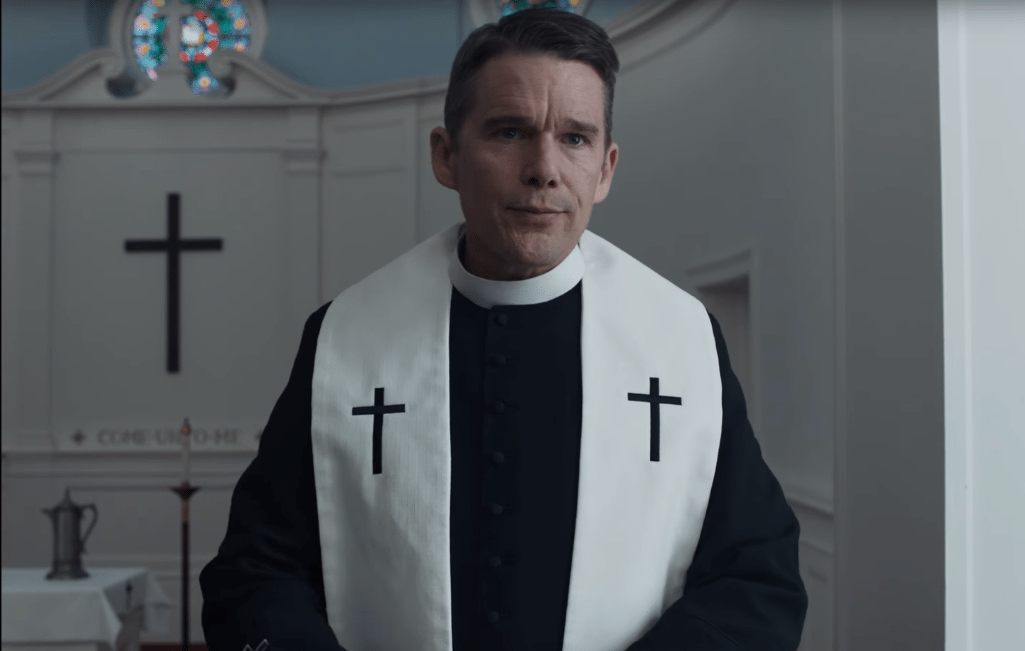2017 (long past now) was not a great year for films. Even acclaimed titles like The Post and Dunkirk, while well executed, seemed safe and lacked something substantial or new to say. However, there were still a few standout films that are worth your time. Here are my favorite films of 2017.
10. The Foreigner
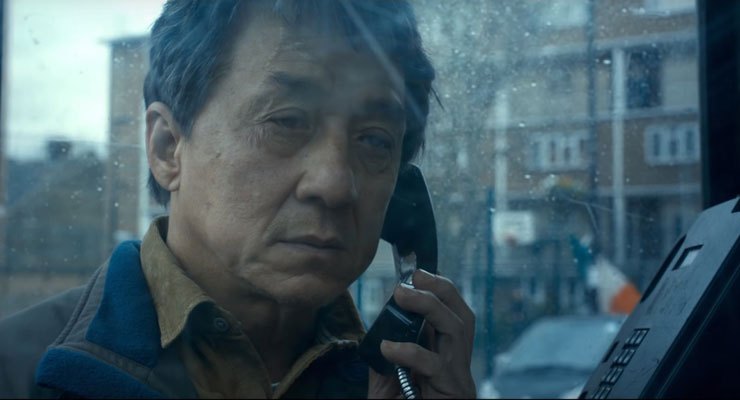
It’s always great to see Jackie Chan in a new movie, particularly one where he isn’t typecast. Chan plays a father with a military background living peacefully in London until his daughter, his only living family, is killed in an IRA bombing. He is crippled by the loss and demands to meet with a minister who has ties to the terrorist group (Pierce Brosnan; Goldeneye). Unable to get any information about his daughter’s killers, he personally threatens the minister until he finds the culprits. Chan’s performance is determined but also tender. His actions are fueled by his overwhelming grief and his need for justice for his innocent child. Even as he takes extreme measures, he still engenders compassion. And that is not to say that his acts are without criticism. Director Martin Campbell (Casino Royale) does an admirable job of contrasting Chan’s revenge with Brosnan’s web of deceptive bureaucracy and Chan shows that he can still fight off a gang of goons even in his 60s. The lead performances and intriguing plot turn what was at first-glance a Taken knockoff into an involving thriller.
Streaming options
9. The Levelling
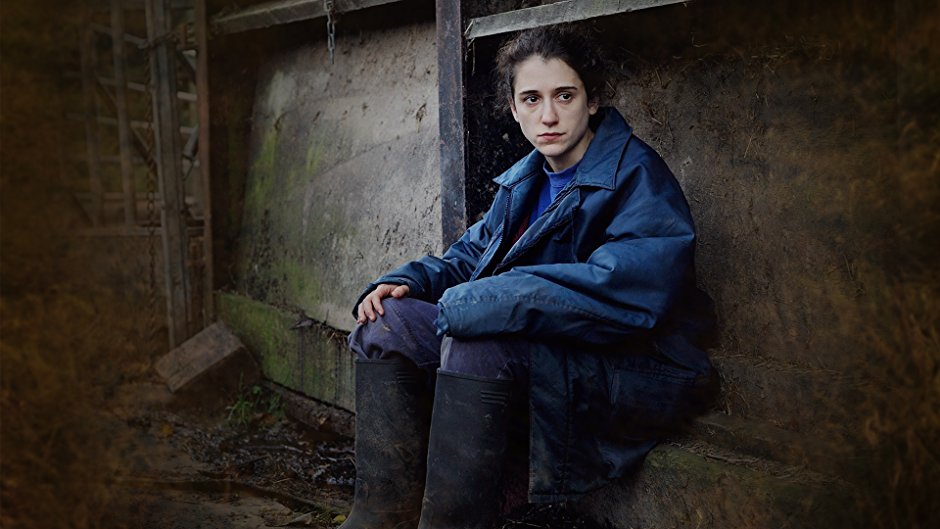
They say “you can never go home again” and The Levelling presents a very good reason why – or perhaps a reason why you should never leave in the first place. Clover (Ellie Kendrick; Game of Thrones) is forced to return home to her family farm after learning of her brother’s suicide. She hasn’t been back or spoken to her father in years and is shocked to find how much has changed after floods damaged the area months earlier. These are small town farmers, curt with their words and reticent to discuss the issues Clover can sense, but not fully comprehend. First time director Hope Dickinson Leach creates the palpable misery of destitute farmers suffering from cruel twists of fate. Clover’s reconciliation with her father and her understanding of the world they live in come suddenly as their attempts at pragmatism give way to the raw emotion of mutual despair.
Streaming options
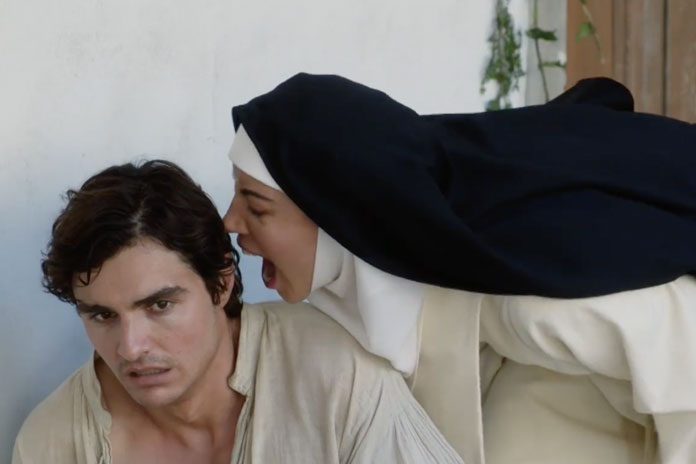
Nobody from this cast makes sense in this setting at first. A killer lineup of comedians featuring Aubrey Plaza, Alison Brie, Kate Micucci, Dave Franco, and more speak in their regular American accents while the film maintains that they are in 14th century Italy. The women play nuns in a convent whose lives are disrupted when a young, attractive male (Franco) becomes their gardener. These are the most profane nuns you’ll see for some time. The women curse like sailors and are belligerent towards their staff with Plaza leading the crazy crew. What could have been a typical sex comedy is elevated by juxtaposing the obscene language with the nuns’ innocence. Like a group of foul-mouthed 3rd graders, these nuns have had no real-life experiences and don’t fully understand what they are saying. The naivete from their sheltered lives makes the risqué situations they find themselves in hilarious as their blatant ineptitude creates a comical cycle of escalating chaos.
Streaming options

Detroit addresses modern issues of police brutality and injustice during prosecution through recreating the Algiers Motel incident of 1967. The director/writer team of Kathryn Bigelow and Mark Boal (The Hurt Locker) continue their detail driven filmmaking as they nail the setting and Bigelow’s trademark documentary style shooting makes the actions onscreen immediate. Divided into three distinct acts with their own tone and pacing, the film never loses its immersive quality. It can be as enveloping, horrifying, and infuriating as it needs to be. Detroit lights a fire beneath anyone indifferent about today’s systemic problems by being relevant and, more importantly, inescapable as it submerges the viewer in injustice.
Streaming options
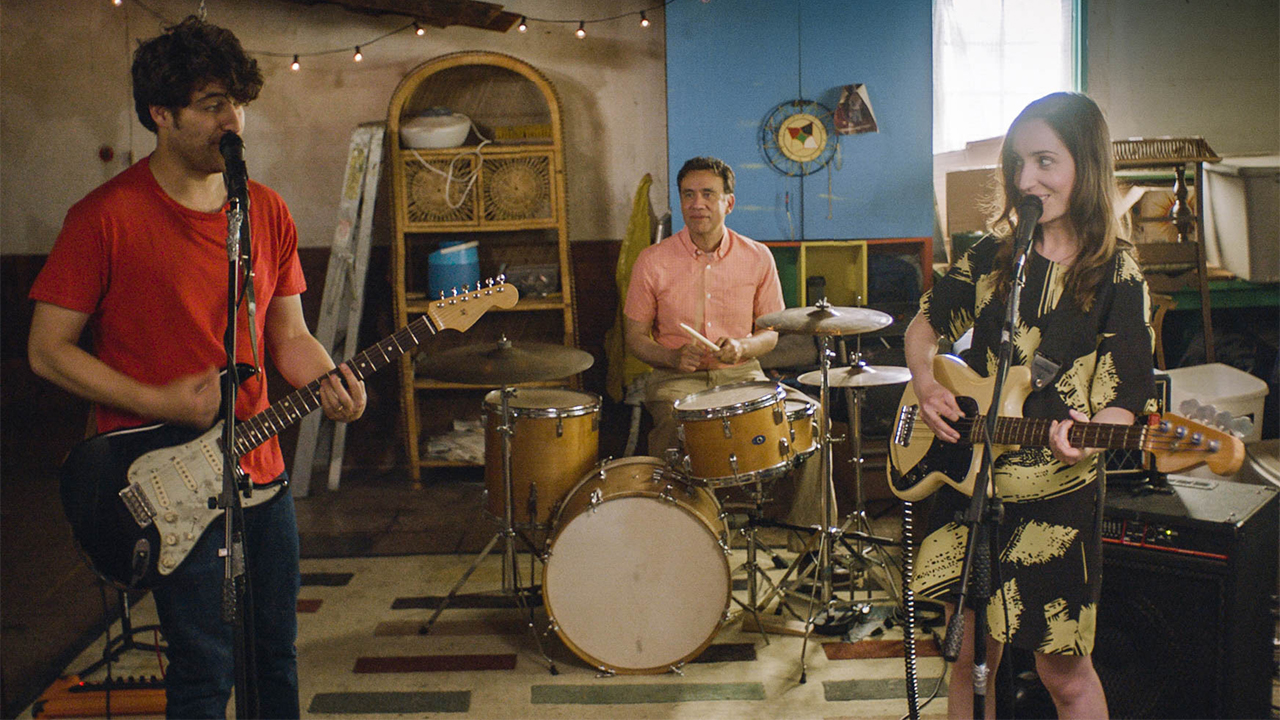 After jokingly picking up plastic instruments at a birthday party for a friend’s child, an increasingly bitter 30-something married couple makes the unlikely decision to start a band together, using their fights as inspiration for their songs. Writer-director-star Zoe Lister-Jones and Adam Polly lead the band with some help on the drums from their strange neighbor played by Fred Armisen. The songs may be amateurish, but the performances are enthusiastic and the lyrics are relatable. As the band develops, so does the central relationship. The music-as-couple’s-therapy conceit brings playfulness to the film and their quarreling adds humor to each of the songs. The gradual rekindling and reevaluation of their romance through rock and roll is a heartwarming transition.
After jokingly picking up plastic instruments at a birthday party for a friend’s child, an increasingly bitter 30-something married couple makes the unlikely decision to start a band together, using their fights as inspiration for their songs. Writer-director-star Zoe Lister-Jones and Adam Polly lead the band with some help on the drums from their strange neighbor played by Fred Armisen. The songs may be amateurish, but the performances are enthusiastic and the lyrics are relatable. As the band develops, so does the central relationship. The music-as-couple’s-therapy conceit brings playfulness to the film and their quarreling adds humor to each of the songs. The gradual rekindling and reevaluation of their romance through rock and roll is a heartwarming transition.
Streaming options
5. I, Tonya
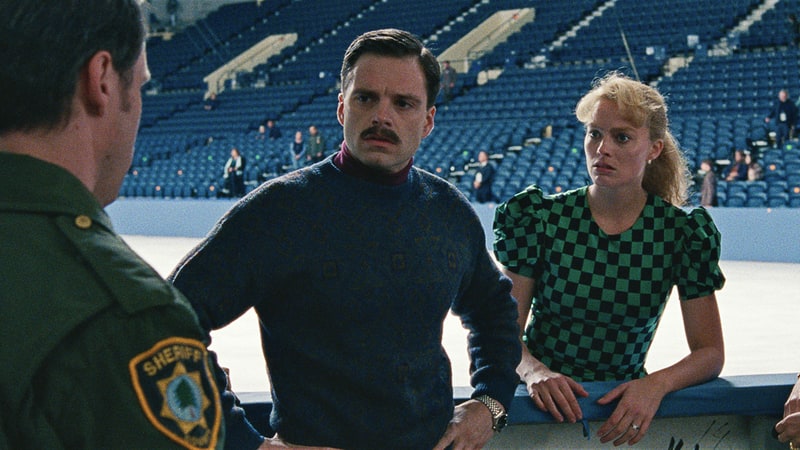
Tonya Harding, the infamous professional ice skater that was banned for allegedly organizing a hit on a competing athlete, was perhaps not the most obvious choice for a revisionist biopic. Craig Gillespie (Lars and the Real Girl) directs Harding’s story as a cross between The Big Short and Goodfellas with the confessionals and self-aware style of the former and the confident panache of the latter. The script, rather than completely siding with Harding, views her a product of her upbringing. Coming from a poor, broken, and both emotionally and physically abusive home life, Harding is portrayed as the victim of a sport and viewership that favored upper-class elegance. She is an almost tragic character whose lack of resources prevented her talent from receiving the respect she deserved. The film balances this with the larger than life supporting cast led by Allison Janney as Harding’s mother. Their ridiculous, but apparently true-to-life antics make the movie a boisterous and irreverent character study.
Streaming options
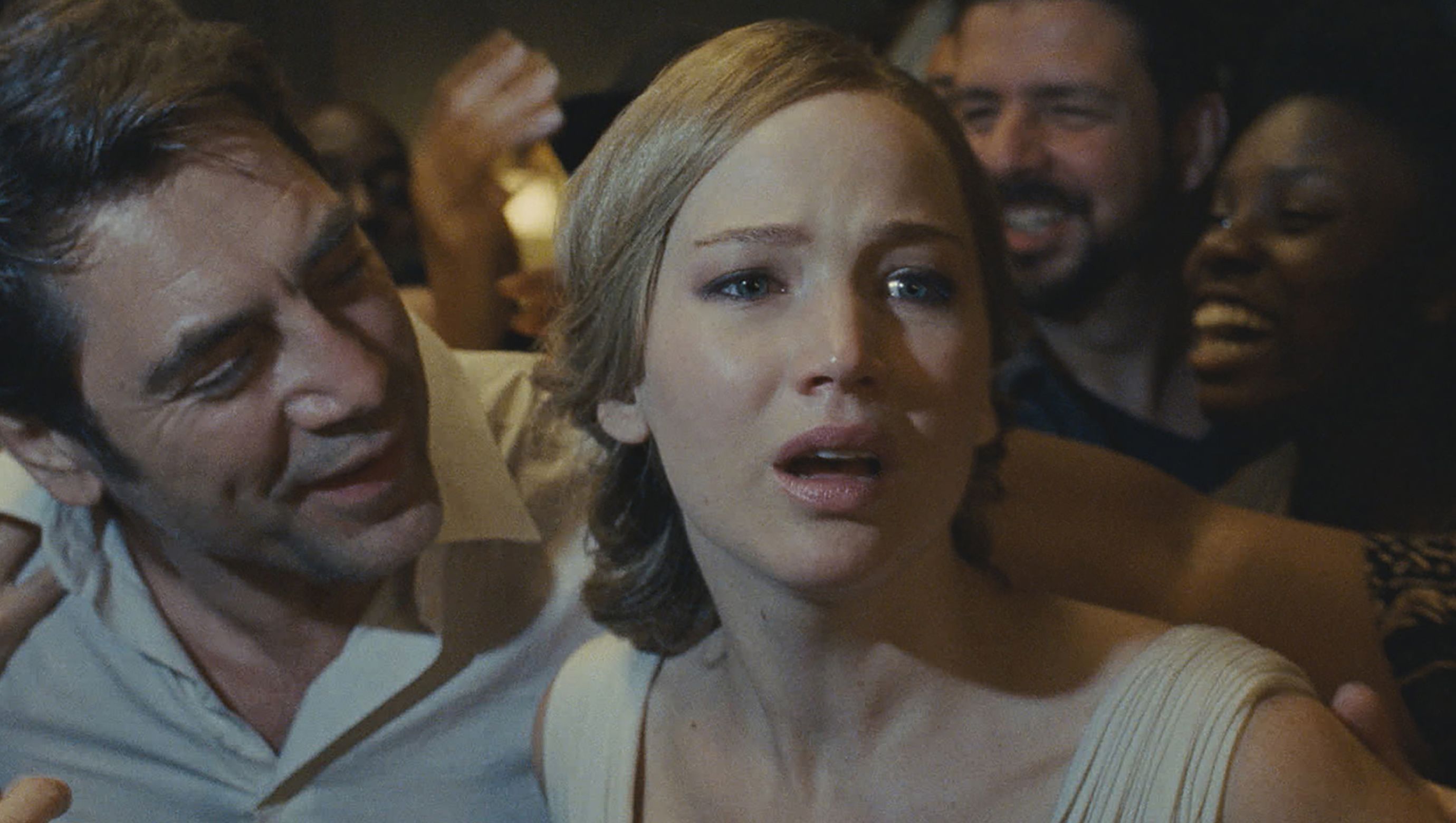 Darren Aronofsky (Requiem for a Dream) deserves some type of award. Not just for writing and directing this film, but for convincing a major studio to finance and distribute it in a wide release. Nothing about mother! screams mass appeal. This is the work of a filmmaker of extreme talent with the swaggering confidence and sufficient budget to attempt such a crazy endeavor. A woman (Jennifer Lawrence; The Hunger Games) lives in the countryside with her writer husband (Javier Bardem; No Country for Old Men) in idyllic peace until a fan knocks on their door. Before long the house descends into chaos as droves of unwanted guests commandeer her space, becoming increasingly rabid for her husband’s approval. Interpretations range from ecological damage to biblical stories to the insatiable ego of an artist but what remains constant is the sheer skill needed to pull something like this off. mother! a mesmerizing, dizzying, often frantic film that could only be made by a director with Aronofsky’s originality and mad ambition.
Darren Aronofsky (Requiem for a Dream) deserves some type of award. Not just for writing and directing this film, but for convincing a major studio to finance and distribute it in a wide release. Nothing about mother! screams mass appeal. This is the work of a filmmaker of extreme talent with the swaggering confidence and sufficient budget to attempt such a crazy endeavor. A woman (Jennifer Lawrence; The Hunger Games) lives in the countryside with her writer husband (Javier Bardem; No Country for Old Men) in idyllic peace until a fan knocks on their door. Before long the house descends into chaos as droves of unwanted guests commandeer her space, becoming increasingly rabid for her husband’s approval. Interpretations range from ecological damage to biblical stories to the insatiable ego of an artist but what remains constant is the sheer skill needed to pull something like this off. mother! a mesmerizing, dizzying, often frantic film that could only be made by a director with Aronofsky’s originality and mad ambition.
Streaming options
 It’s hard to think of a film that turns an unsettling premise into such a joy to watch. Without spoiling the setup (it’s better to not know before viewing), James (Kyle Mooney; Saturday Night Live) rejoins his family as an adult and is obsessed with Brigsby Bear, a TV show that only he has had access to. His parents encourage him to reintegrate with society, but fandom remains his highest priority. With no more episodes being developed, he decides to create a movie that will be Brigsby’s final chapter. Instead of ridiculing James’ unrealistic goals, the film takes every opportunity to support him. Characters band together around his infectious enthusiasm and childlike wonder. As James embarks on his journey, his naivete and confusion about the norms of society provide an endless source of humor. Mooney’s effervescent charm permeates every frame of the film. It’s a counterpoint to our cynical times that is bursting with genuine exuberance and unbridled optimism.
It’s hard to think of a film that turns an unsettling premise into such a joy to watch. Without spoiling the setup (it’s better to not know before viewing), James (Kyle Mooney; Saturday Night Live) rejoins his family as an adult and is obsessed with Brigsby Bear, a TV show that only he has had access to. His parents encourage him to reintegrate with society, but fandom remains his highest priority. With no more episodes being developed, he decides to create a movie that will be Brigsby’s final chapter. Instead of ridiculing James’ unrealistic goals, the film takes every opportunity to support him. Characters band together around his infectious enthusiasm and childlike wonder. As James embarks on his journey, his naivete and confusion about the norms of society provide an endless source of humor. Mooney’s effervescent charm permeates every frame of the film. It’s a counterpoint to our cynical times that is bursting with genuine exuberance and unbridled optimism.
Streaming options
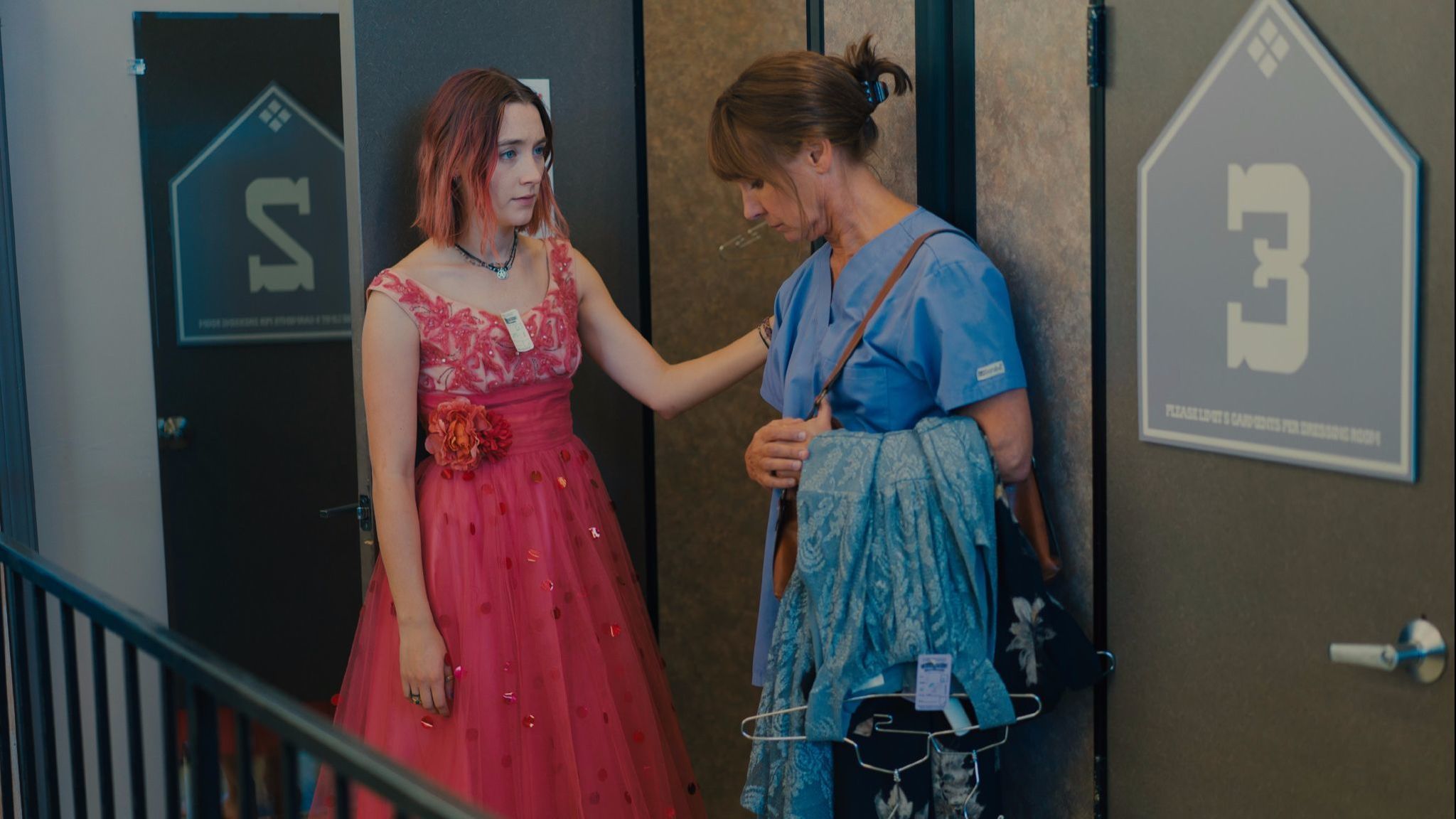 Greta Gerwig (Damsels in Distress) could not have had a more auspicious debut than this. Her first film as a solo writer-director draws on her own experiences growing up in Sacramento and follows Lady Bird (Saoirse Ronan; Brooklyn) in her last year of high school. The fiercely independent daughter of an equally strong-willed mother (Laurie Metcalf), Lady Bird struggles to find her place in her hometown. She drifts through different social groups, boyfriends, and arguments with her mother. As a young woman trying to define herself, Ronan captures the conflicted, confused teenage experience and Gerwig is completely in tune with her difficulties. She separates her film from other teen stories by examining not only Lady Bird, but an entire home (including her mother, father, and brother) in transition. She views these characters as equally important and shows how each is simultaneously facing their own life altering challenges. Her ability to balance multiple plotlines and see the greater context of each character’s arc make this one of the best coming-of-age movies in recent memory.
Greta Gerwig (Damsels in Distress) could not have had a more auspicious debut than this. Her first film as a solo writer-director draws on her own experiences growing up in Sacramento and follows Lady Bird (Saoirse Ronan; Brooklyn) in her last year of high school. The fiercely independent daughter of an equally strong-willed mother (Laurie Metcalf), Lady Bird struggles to find her place in her hometown. She drifts through different social groups, boyfriends, and arguments with her mother. As a young woman trying to define herself, Ronan captures the conflicted, confused teenage experience and Gerwig is completely in tune with her difficulties. She separates her film from other teen stories by examining not only Lady Bird, but an entire home (including her mother, father, and brother) in transition. She views these characters as equally important and shows how each is simultaneously facing their own life altering challenges. Her ability to balance multiple plotlines and see the greater context of each character’s arc make this one of the best coming-of-age movies in recent memory.
Streaming options
1. A Quiet Passion
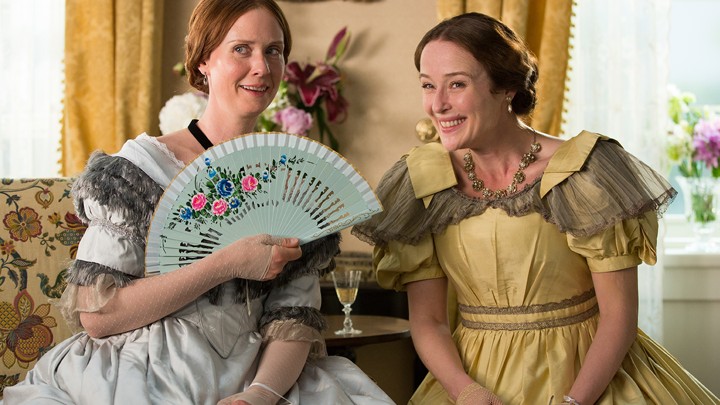 Despite being my top pick for last year, this may be the most idiosyncratic choice on this list. Terence Davies’ biopic on the life of Emily Dickinson will not be for everyone. It’s slow moving with the elaborate, often flowery dialogue of the period and makes no attempt to build to a traditional climax. Rather, the film presents Dickenson’s adult life in deeply sympathetic detail. Cynthia Nixon (Sex and the City) delivers a career defining, nuanced performance as the great poet.
Despite being my top pick for last year, this may be the most idiosyncratic choice on this list. Terence Davies’ biopic on the life of Emily Dickinson will not be for everyone. It’s slow moving with the elaborate, often flowery dialogue of the period and makes no attempt to build to a traditional climax. Rather, the film presents Dickenson’s adult life in deeply sympathetic detail. Cynthia Nixon (Sex and the City) delivers a career defining, nuanced performance as the great poet.
Through her acting we see Dickinson’s razor-sharp wit, her struggles to establish herself in a patriarchal society, and the pain she suffers as she refuses to adhere to societal norms. The banter between the Dickinson siblings or the snide remarks between Emily and her rebellious friends are as funny as any comedy this year. Nixon is also able to capture the pain beneath Dickinson’s writing and sarcastic exterior. In the film’s intimate moments, we see the sacrifices she has made for her beliefs. Dickinson’s great loves, her family and her writing, take priority over her personal needs and her resignation to an incomplete life is heartbreaking. Even as she becomes bitter in her later years, her actions are forgivable as natural consequences of her difficult choices.
The film moves at its own unhurried pace. It floats by, driven by the natural passing of time rather than any contrived plot device and Davies does a remarkable job of recreating Dickinson’s life in a relatable way. His gentle directing eclipses the boundaries of time and location and presents a humanist, compassionate look at this icon of American literature.
Streaming options
Honorable Mentions:
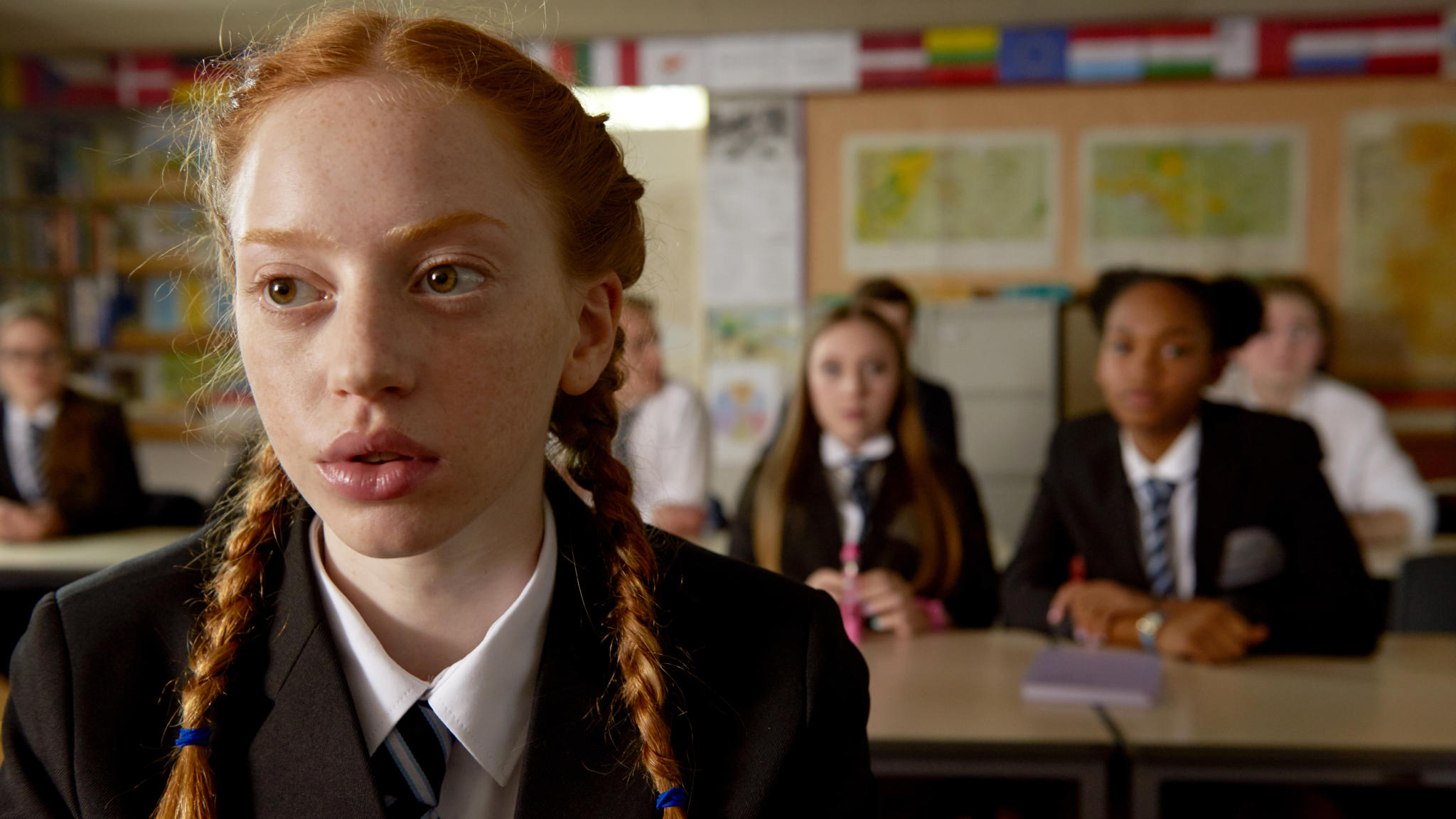

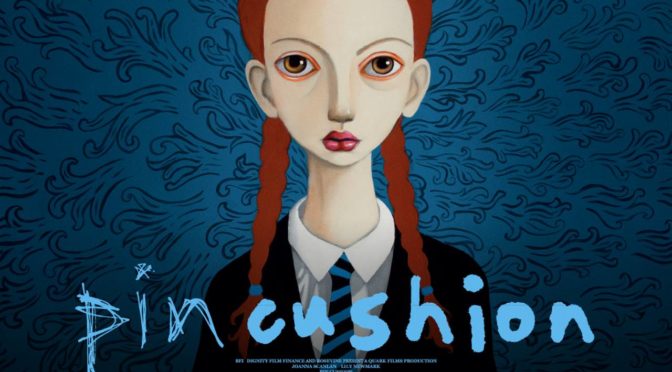
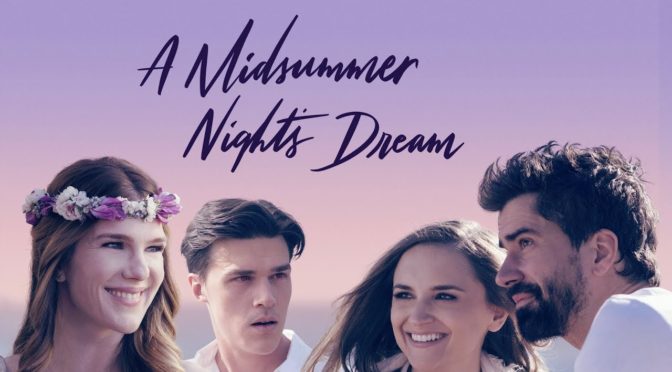



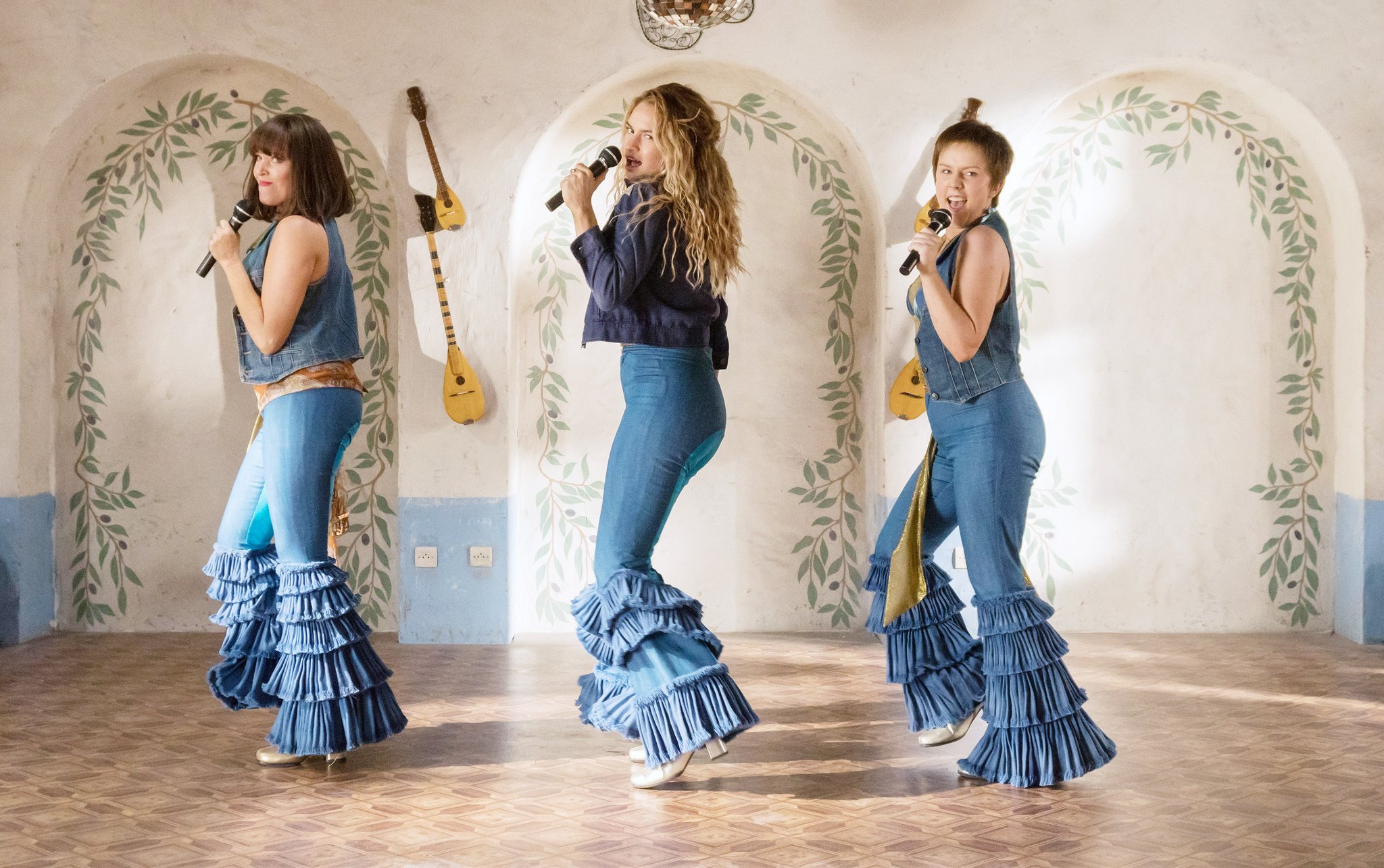
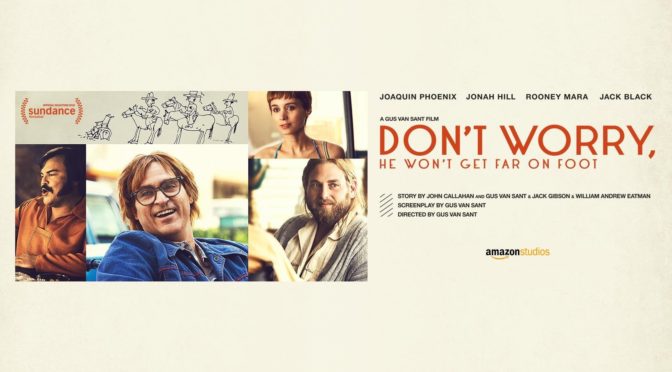
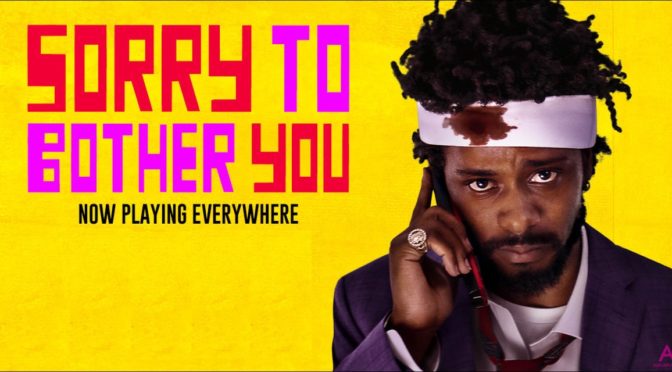
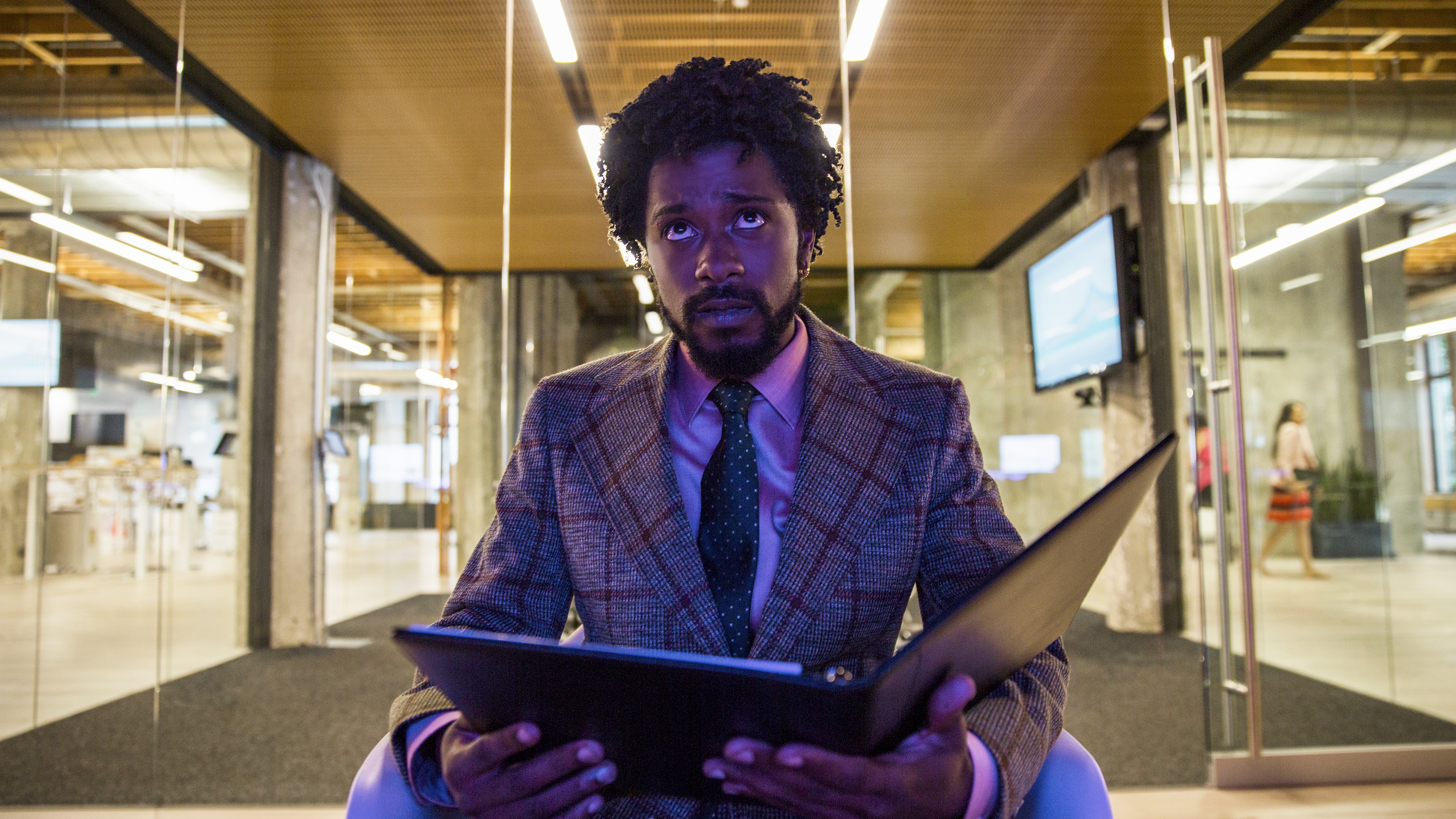
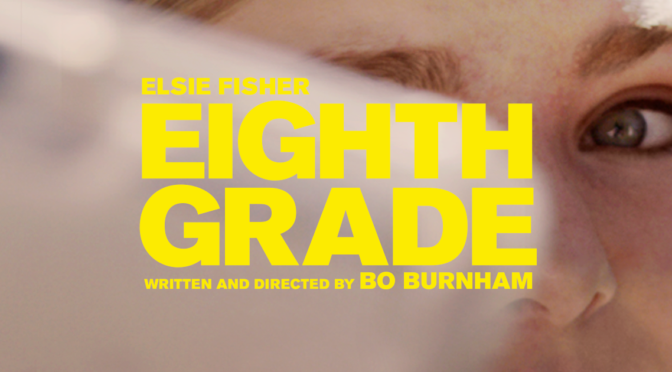
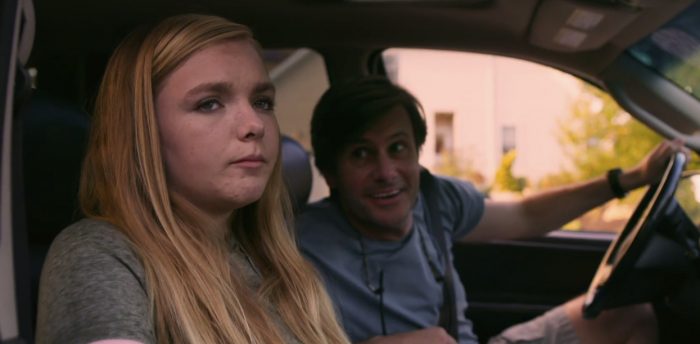
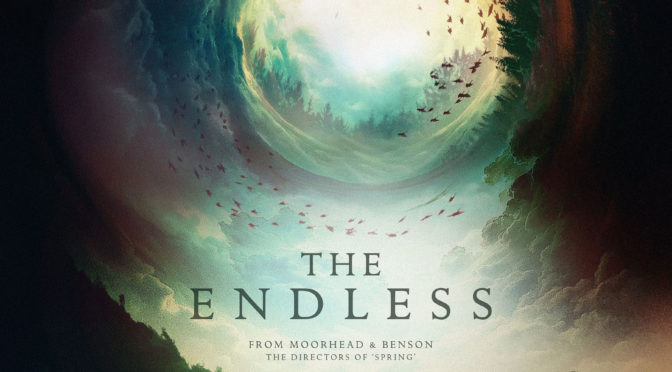
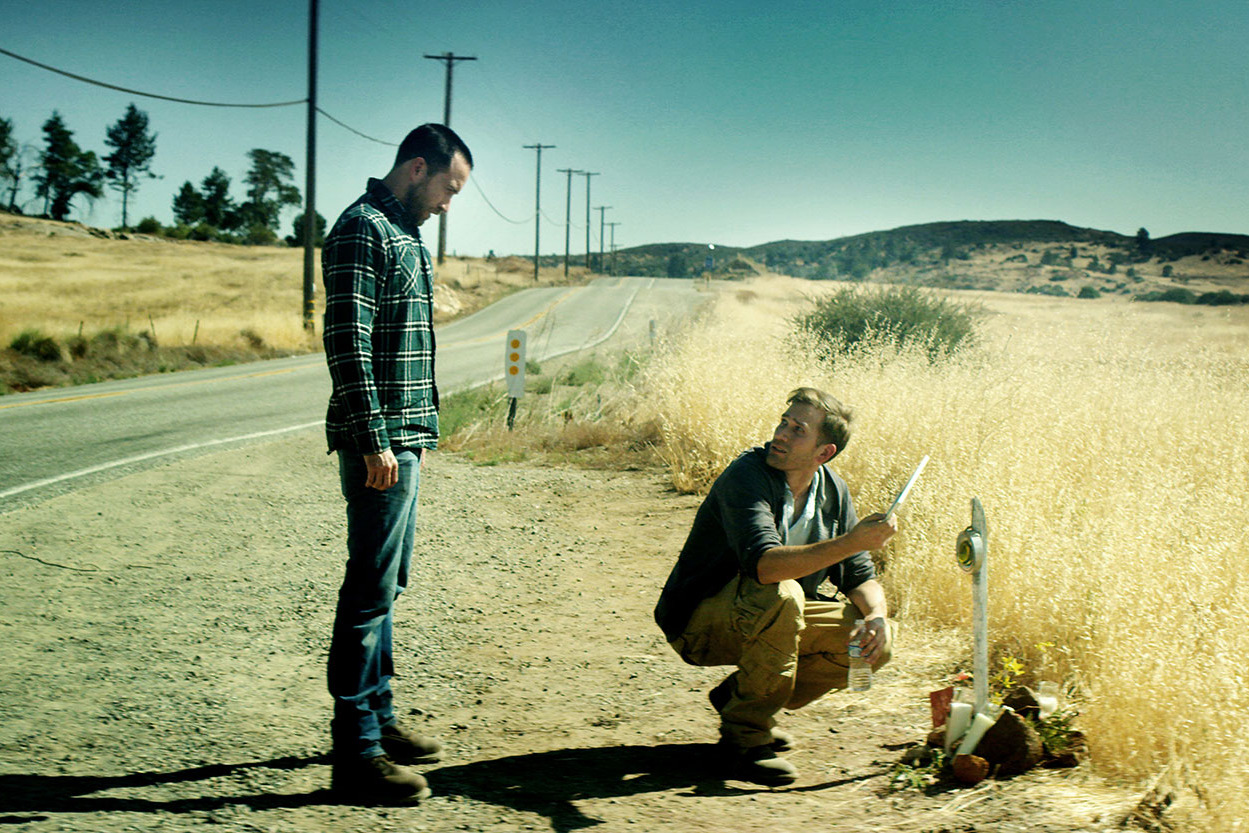
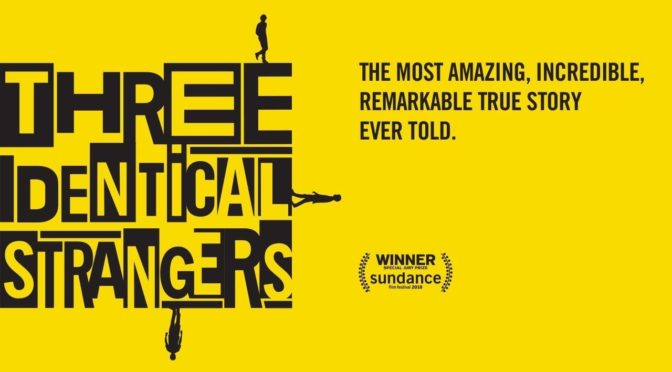
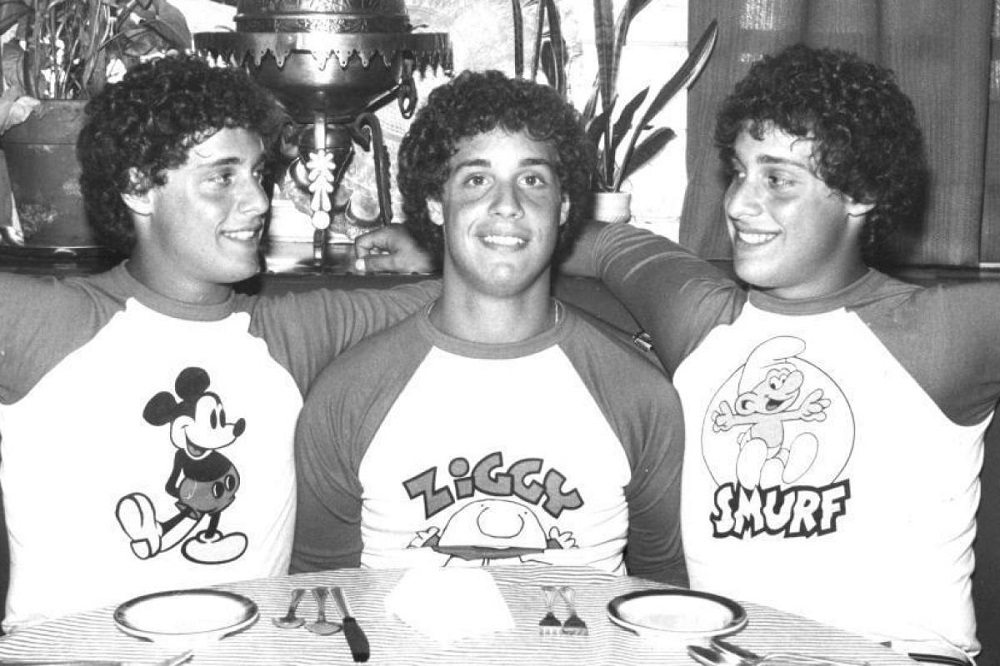





 After jokingly picking up plastic instruments at a birthday party for a friend’s child, an increasingly bitter 30-something married couple makes the unlikely decision to start a band together, using their fights as inspiration for their songs. Writer-director-star Zoe Lister-Jones and Adam Polly lead the band with some help on the drums from their strange neighbor played by Fred Armisen. The songs may be amateurish, but the performances are enthusiastic and the lyrics are relatable. As the band develops, so does the central relationship. The music-as-couple’s-therapy conceit brings playfulness to the film and their quarreling adds humor to each of the songs. The gradual rekindling and reevaluation of their romance through rock and roll is a heartwarming transition.
After jokingly picking up plastic instruments at a birthday party for a friend’s child, an increasingly bitter 30-something married couple makes the unlikely decision to start a band together, using their fights as inspiration for their songs. Writer-director-star Zoe Lister-Jones and Adam Polly lead the band with some help on the drums from their strange neighbor played by Fred Armisen. The songs may be amateurish, but the performances are enthusiastic and the lyrics are relatable. As the band develops, so does the central relationship. The music-as-couple’s-therapy conceit brings playfulness to the film and their quarreling adds humor to each of the songs. The gradual rekindling and reevaluation of their romance through rock and roll is a heartwarming transition.
 Darren Aronofsky (Requiem for a Dream) deserves some type of award. Not just for writing and directing this film, but for convincing a major studio to finance and distribute it in a wide release. Nothing about mother! screams mass appeal. This is the work of a filmmaker of extreme talent with the swaggering confidence and sufficient budget to attempt such a crazy endeavor. A woman (Jennifer Lawrence; The Hunger Games) lives in the countryside with her writer husband (Javier Bardem; No Country for Old Men) in idyllic peace until a fan knocks on their door. Before long the house descends into chaos as droves of unwanted guests commandeer her space, becoming increasingly rabid for her husband’s approval. Interpretations range from ecological damage to biblical stories to the insatiable ego of an artist but what remains constant is the sheer skill needed to pull something like this off. mother! a mesmerizing, dizzying, often frantic film that could only be made by a director with Aronofsky’s originality and mad ambition.
Darren Aronofsky (Requiem for a Dream) deserves some type of award. Not just for writing and directing this film, but for convincing a major studio to finance and distribute it in a wide release. Nothing about mother! screams mass appeal. This is the work of a filmmaker of extreme talent with the swaggering confidence and sufficient budget to attempt such a crazy endeavor. A woman (Jennifer Lawrence; The Hunger Games) lives in the countryside with her writer husband (Javier Bardem; No Country for Old Men) in idyllic peace until a fan knocks on their door. Before long the house descends into chaos as droves of unwanted guests commandeer her space, becoming increasingly rabid for her husband’s approval. Interpretations range from ecological damage to biblical stories to the insatiable ego of an artist but what remains constant is the sheer skill needed to pull something like this off. mother! a mesmerizing, dizzying, often frantic film that could only be made by a director with Aronofsky’s originality and mad ambition. It’s hard to think of a film that turns an unsettling premise into such a joy to watch. Without spoiling the setup (it’s better to not know before viewing), James (Kyle Mooney; Saturday Night Live) rejoins his family as an adult and is obsessed with Brigsby Bear, a TV show that only he has had access to. His parents encourage him to reintegrate with society, but fandom remains his highest priority. With no more episodes being developed, he decides to create a movie that will be Brigsby’s final chapter. Instead of ridiculing James’ unrealistic goals, the film takes every opportunity to support him. Characters band together around his infectious enthusiasm and childlike wonder. As James embarks on his journey, his naivete and confusion about the norms of society provide an endless source of humor. Mooney’s effervescent charm permeates every frame of the film. It’s a counterpoint to our cynical times that is bursting with genuine exuberance and unbridled optimism.
It’s hard to think of a film that turns an unsettling premise into such a joy to watch. Without spoiling the setup (it’s better to not know before viewing), James (Kyle Mooney; Saturday Night Live) rejoins his family as an adult and is obsessed with Brigsby Bear, a TV show that only he has had access to. His parents encourage him to reintegrate with society, but fandom remains his highest priority. With no more episodes being developed, he decides to create a movie that will be Brigsby’s final chapter. Instead of ridiculing James’ unrealistic goals, the film takes every opportunity to support him. Characters band together around his infectious enthusiasm and childlike wonder. As James embarks on his journey, his naivete and confusion about the norms of society provide an endless source of humor. Mooney’s effervescent charm permeates every frame of the film. It’s a counterpoint to our cynical times that is bursting with genuine exuberance and unbridled optimism. Greta Gerwig (Damsels in Distress) could not have had a more auspicious debut than this. Her first film as a solo writer-director draws on her own experiences growing up in Sacramento and follows Lady Bird (Saoirse Ronan; Brooklyn) in her last year of high school. The fiercely independent daughter of an equally strong-willed mother (Laurie Metcalf), Lady Bird struggles to find her place in her hometown. She drifts through different social groups, boyfriends, and arguments with her mother. As a young woman trying to define herself, Ronan captures the conflicted, confused teenage experience and Gerwig is completely in tune with her difficulties. She separates her film from other teen stories by examining not only Lady Bird, but an entire home (including her mother, father, and brother) in transition. She views these characters as equally important and shows how each is simultaneously facing their own life altering challenges. Her ability to balance multiple plotlines and see the greater context of each character’s arc make this one of the best coming-of-age movies in recent memory.
Greta Gerwig (Damsels in Distress) could not have had a more auspicious debut than this. Her first film as a solo writer-director draws on her own experiences growing up in Sacramento and follows Lady Bird (Saoirse Ronan; Brooklyn) in her last year of high school. The fiercely independent daughter of an equally strong-willed mother (Laurie Metcalf), Lady Bird struggles to find her place in her hometown. She drifts through different social groups, boyfriends, and arguments with her mother. As a young woman trying to define herself, Ronan captures the conflicted, confused teenage experience and Gerwig is completely in tune with her difficulties. She separates her film from other teen stories by examining not only Lady Bird, but an entire home (including her mother, father, and brother) in transition. She views these characters as equally important and shows how each is simultaneously facing their own life altering challenges. Her ability to balance multiple plotlines and see the greater context of each character’s arc make this one of the best coming-of-age movies in recent memory. Despite being my top pick for last year, this may be the most idiosyncratic choice on this list. Terence Davies’ biopic on the life of Emily Dickinson will not be for everyone. It’s slow moving with the elaborate, often flowery dialogue of the period and makes no attempt to build to a traditional climax. Rather, the film presents Dickenson’s adult life in deeply sympathetic detail. Cynthia Nixon (Sex and the City) delivers a career defining, nuanced performance as the great poet.
Despite being my top pick for last year, this may be the most idiosyncratic choice on this list. Terence Davies’ biopic on the life of Emily Dickinson will not be for everyone. It’s slow moving with the elaborate, often flowery dialogue of the period and makes no attempt to build to a traditional climax. Rather, the film presents Dickenson’s adult life in deeply sympathetic detail. Cynthia Nixon (Sex and the City) delivers a career defining, nuanced performance as the great poet.